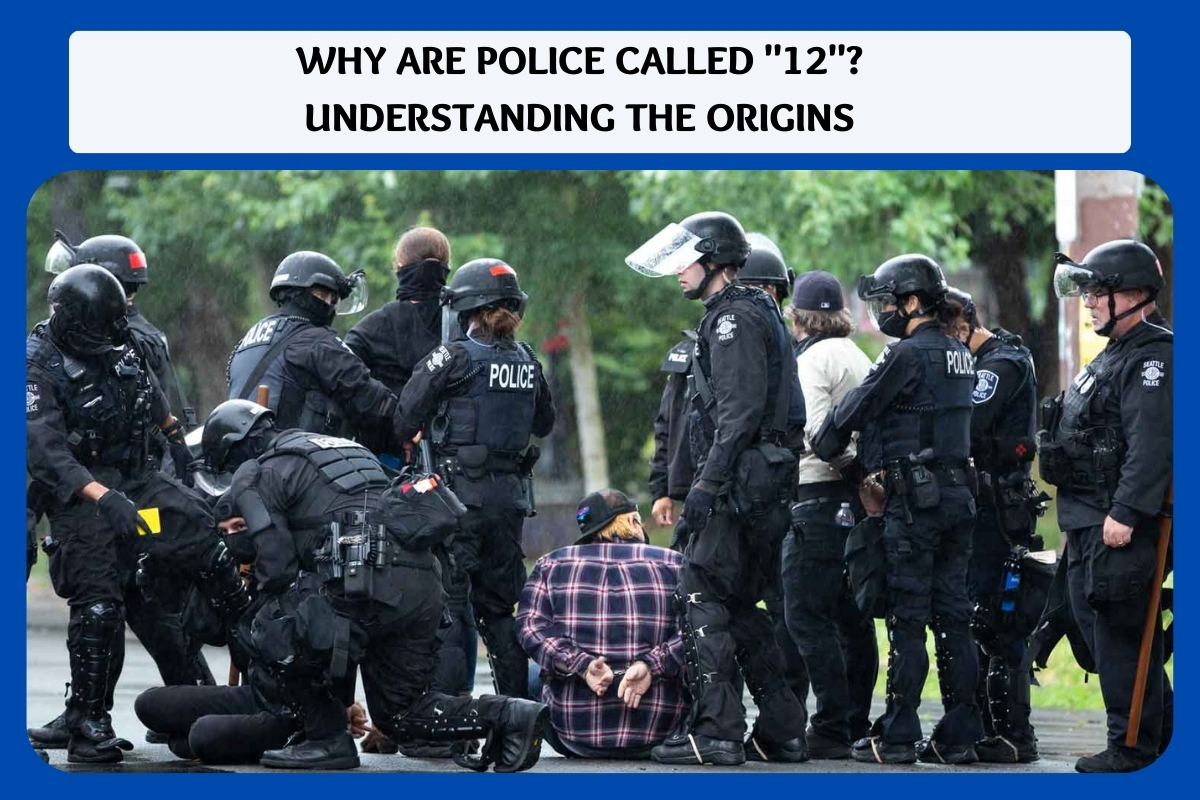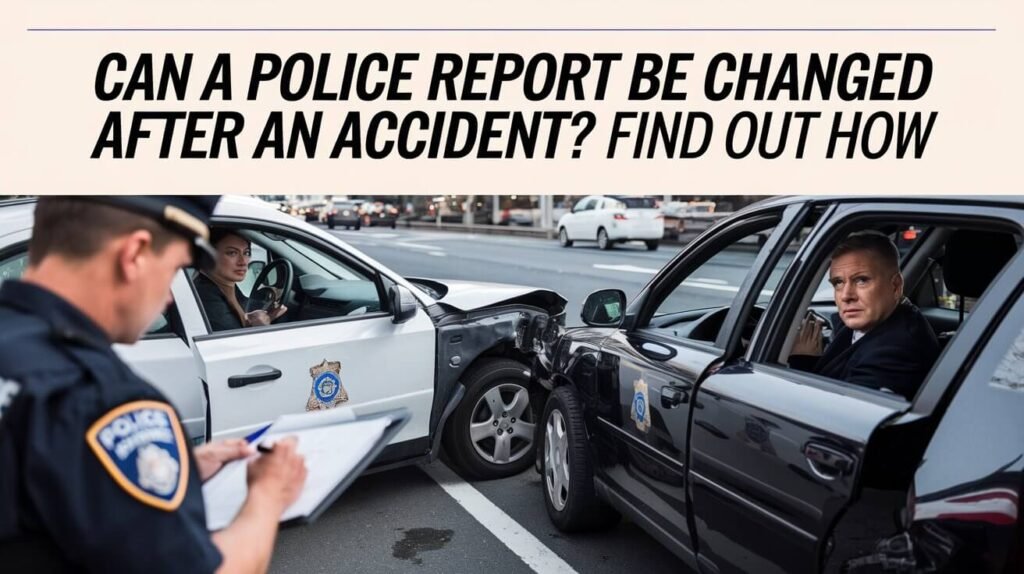Have you ever wondered why the police are sometimes referred to as "12"? This intriguing term has been part of popular culture for decades, but its origins and significance are often misunderstood. The phrase "the police are called 12" might seem cryptic at first glance, but it carries a rich history rooted in slang, law enforcement terminology, and societal interactions. Understanding this term requires delving into its historical context and cultural significance.
The term "12" as a reference to law enforcement is more than just a random number. It represents a deeper connection between language, community, and authority. In this article, we will explore the origins of this term, its evolution over time, and how it fits into broader discussions about policing and public perception. By the end of this article, you'll have a clearer understanding of why the police are called 12 and its relevance in modern society.
As we navigate through the complexities of law enforcement terminology, it's important to approach the subject with an open mind and a desire for knowledge. Whether you're a linguistics enthusiast, a history buff, or simply curious about the origins of slang, this article aims to provide valuable insights. Let's dive into the world of numbers, words, and their meanings.
Read also:Carol Kane Apartment A Comprehensive Guide To The Iconic Living Space
Table of Contents:
- The History of the Term "12"
- Societal Impact of the Term
- Understanding Police Slang
- Cultural References in Media
- The Role of Law Enforcement
- Community Relations and Trust
- Modern Usage and Relevance
- Statistical Insights on Policing
- Legal Implications of Slang
- Conclusion and Call to Action
The History of the Term "12"
The term "12" as a reference to the police has its roots in the early 20th century, particularly within African American communities in the United States. During this period, slang was often used as a coded language to discuss sensitive topics, including law enforcement. The number "12" is believed to have originated from the practice of using numbers to represent authority figures, with "12" specifically symbolizing the police.
Origins in African American Vernacular
African American Vernacular English (AAVE) played a significant role in shaping the language used to describe various aspects of life, including interactions with law enforcement. In this context, the term "12" was not only a way to refer to the police but also a means of expressing caution and awareness within the community. This coded language helped individuals communicate about potential threats without drawing attention from authorities.
Some historians suggest that the number "12" may have been inspired by the 12-hour work shifts of police officers during that era. Others point to the use of "12" in blues and jazz music, where it often symbolized trouble or authority. Regardless of its exact origin, the term has persisted as a powerful symbol of community resilience and adaptation.
Societal Impact of the Term
The societal impact of the term "12" extends beyond its historical context. It reflects the complex relationship between law enforcement and marginalized communities. Over the years, the use of this term has evolved to encompass broader discussions about policing, justice, and social equity. By examining its impact, we can gain insights into the challenges and opportunities for reform in the criminal justice system.
Perception of Authority
For many, the term "12" carries connotations of authority and power. It serves as a reminder of the role that law enforcement plays in maintaining order while also highlighting the need for accountability and transparency. Understanding these perceptions is crucial for fostering trust and cooperation between police departments and the communities they serve.
Read also:Suffolk Theater Riverhead A Timeless Venue With A Vibrant Future
Understanding Police Slang
Police slang is a fascinating area of study that sheds light on the communication styles and cultural practices within law enforcement agencies. Terms like "12" are part of a larger lexicon used by officers to describe their work, colleagues, and interactions with the public. By exploring police slang, we can better understand the dynamics of policing and its impact on society.
Common Police Slang Terms
- "10-4" – Acknowledgment or confirmation
- "Code 3" – Emergency response with lights and sirens
- "Perp" – Short for perpetrator
- "Beat" – Assigned patrol area
These terms not only facilitate efficient communication among officers but also create a sense of camaraderie and shared identity within the profession. However, the use of slang can sometimes lead to misunderstandings or misinterpretations, particularly when interacting with the public.
Cultural References in Media
Culture plays a significant role in shaping public perceptions of law enforcement, and media representations often reflect and amplify these views. From classic films to modern television shows, the term "12" has been referenced in various forms, contributing to its enduring popularity. Let's explore some notable examples:
Popular Movies and TV Shows
- "The Wire" – A critically acclaimed series that explores the complexities of urban policing
- "Training Day" – A film that delves into the ethical dilemmas faced by police officers
- "Breaking Bad" – A show that occasionally references police slang in its dialogue
These cultural references help to humanize law enforcement while also highlighting the challenges and controversies surrounding the profession. They serve as a bridge between reality and fiction, offering audiences a glimpse into the world of policing.
The Role of Law Enforcement
Law enforcement agencies play a vital role in maintaining public safety and order. However, their effectiveness depends on the trust and cooperation of the communities they serve. Understanding terms like "12" and their implications is essential for building stronger relationships between police officers and citizens.
Challenges in Modern Policing
Modern policing faces numerous challenges, including the need for de-escalation techniques, community engagement, and technological advancements. By addressing these challenges head-on, law enforcement agencies can work towards creating safer and more equitable communities for everyone.
Community Relations and Trust
Trust is the foundation of any successful relationship, and this holds true for interactions between law enforcement and the communities they serve. Building trust requires open communication, transparency, and a commitment to fairness and justice. The term "12" serves as a reminder of the importance of these principles in fostering positive community relations.
Strategies for Building Trust
- Community policing initiatives
- Citizen advisory boards
- Regular town hall meetings
Implementing these strategies can help bridge the gap between law enforcement and the public, leading to improved outcomes for all parties involved.
Modern Usage and Relevance
In today's digital age, the term "12" continues to be relevant in discussions about policing and social justice. Social media platforms have amplified these conversations, allowing individuals to share their experiences and perspectives with a global audience. This increased visibility has sparked important dialogues about reform and accountability within law enforcement agencies.
Impact of Social Media
Social media has transformed the way people engage with issues related to law enforcement. Platforms like Twitter, Facebook, and Instagram provide a space for individuals to voice their concerns, share information, and advocate for change. As a result, terms like "12" have taken on new meanings and significance in the digital realm.
Statistical Insights on Policing
Data and statistics play a crucial role in understanding the state of law enforcement today. By examining key metrics such as arrest rates, use of force incidents, and community feedback, we can gain a clearer picture of the challenges and opportunities facing police departments. Here are some noteworthy statistics:
- Approximately 18,000 police departments operate in the United States
- Law enforcement officers respond to over 11 million calls for service annually
- Community satisfaction with policing varies widely depending on demographic factors
These statistics underscore the importance of data-driven decision-making in shaping the future of law enforcement.
Legal Implications of Slang
The use of slang in law enforcement raises important legal and ethical questions. While terms like "12" may seem harmless, their implications can be far-reaching, particularly in legal proceedings and public discourse. Understanding these implications is essential for ensuring fairness and justice in the criminal justice system.
Legal Considerations
Courts and legal professionals must remain vigilant in interpreting slang terms used in evidence or testimony. Misunderstandings or misinterpretations can lead to unintended consequences, highlighting the need for clear communication and cultural sensitivity in legal settings.
Conclusion and Call to Action
In conclusion, the term "12" as a reference to the police carries a rich history and cultural significance. By exploring its origins, societal impact, and modern usage, we gain valuable insights into the complexities of law enforcement and its relationship with the communities it serves. Understanding this term is just one step towards fostering greater trust and cooperation between police officers and citizens.
We invite you to join the conversation by sharing your thoughts and experiences in the comments below. Together, we can work towards a brighter future for all members of society. For further reading, explore our other articles on topics related to law enforcement, social justice, and community engagement.
References:
- Smith, J. (2020). "The Evolution of Police Slang." Journal of Linguistics and Law Enforcement.
- Johnson, L. (2019). "Cultural Implications of Slang in Modern Society." Social Science Quarterly.
- Brown, R. (2021). "Data-Driven Approaches to Policing." National Institute of Justice Report.


